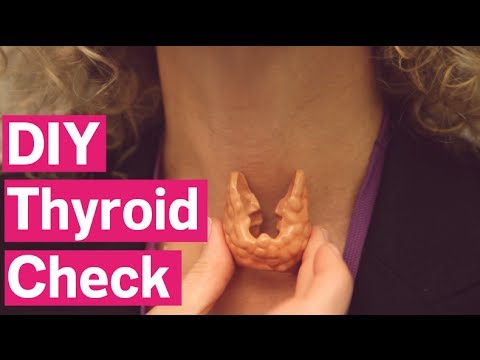How Do I Know I Have a Thyroid Disease?
Thyroid disease, also known as an overactive thyroid, is a condition that can be very difficult to treat
The thyroid gland is an organ of the body that produces the hormones that keep your body functioning properly. The thyroid gland produces the hormone thyroxine, which regulates your metabolism and helps control the amount of energy that your body uses on a daily basis. Your thyroid gland secretes the thyroid hormone TSH, which in turn controls the production and release of these important hormones in the thyroid.
If your thyroids are under active, or underproducing thyroxine, then you have hypothyroidism, which goes away when your thyroid level begins to increase again. If your thyroids are overactive or producing too much thyroid hormone, then you may have an overactive hyperthyroidism, which causes symptoms such as rapid heart beat, sweating, tremors and nausea. Your doctor will be able to determine the type of thyroid disorder that you have based on your symptoms.
Symptoms of hypothyroidism are not the same as the symptoms of hyperthyroidism, so the two types can sometimes be confused. Hypothyroid patients do not have any signs of fatigue, weight gain, constipation, heart palpitations, muscle cramps or loss of appetite. Hyperthyroid patients usually experience these same symptoms, but are more likely to have weight gain, sweating, and weakness. Sometimes, the symptoms of hyperthyroidism are mistaken for those of hypothyroidism, which can make it difficult to diagnose the problem. Some thyroid doctors will refer their patients to a thyroid specialist, who is a doctor specializing in thyroid problems.
A thyroid specialist will examine your doctor's tests and perform additional tests of your body to determine the best course of treatment for your symptoms. The doctor will recommend a specific course of action for each patient, which includes:
Treatment will be given to both patients with an overactive thyroid gland and patients with an under active thyroid. If your doctor decides to use medication to treat the symptoms of hypothyroidism, then the medication is taken to correct your symptoms, and the thyroid gland will not be removed until the symptoms are under control.
In some cases, surgery may be necessary to remove the thyroid. Sometimes, if surgery is necessary, surgery will be performed to correct the overactivity or hyperactivity of your gland.

Medication should only be prescribed for patients who can not tolerate medication
The symptoms can be very serious and can cause complications if the medication is taken for a long time. Many patients will also need to take a second or third dose of medication to help them through their symptoms.
Thyroid diseases can be treated with hormone replacement therapy or with synthetic hormones. These synthetic hormones can be used on a long-term basis, but will not correct the condition overnight. There are other medications that can be used to treat the symptoms of hypothyroidism and hyperthyroidism as well, but should not be used for more than six months at a time because they can cause further damage to the thyroid gland.
Your thyroid doctor will tell you whether you are an ideal candidate for medication or surgery, and what side effects you may face with the chosen course of treatment. He or she will also be able to answer any questions that you might have.
Thyroid cancer is another serious problem that can occur when the thyroid gland is overproducing hormones. There are no known cures for this type of cancer, but there are ways to prevent it from occurring.
Treatment for hypothyroidism and hyperthyroidism will often involve lifestyle changes, as well as medication. to control the levels of the hormones produced by your thyroid gland.
Your doctor will be able to give you a proper dosage of medication, but it will be up to you to monitor the levels of hormones produced by your thyroid and to follow the program to ensure that you are getting the proper amounts of hormones to maintain your body's production. By doing this, you will be able to control the symptoms of your condition, and will be able to control your disease properly.